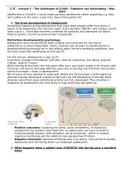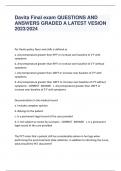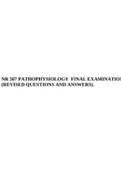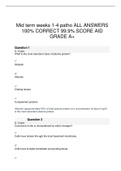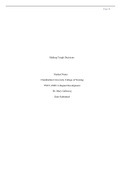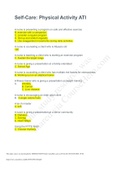Samenvatting
Summary 2.7C - Lecture 5 – The challenges of COVID - Fabienne van Rossenberg – May 2022
- Instelling
- Erasmus Universiteit Rotterdam (EUR)
Summary of Lecture 5 – The challenges of COVID - Fabienne van Rossenberg – May 2022. Please leave a like if your enjoyed my summary!
[Meer zien]
